Every gardener knows the frustration of pulling endless weeds from flowerbeds and vegetable patches. Once the pile grows, the big question appears: should they be tossed in the compost bin or discarded elsewhere?
For many, composting weeds feels risky. Stories of compost piles turning into breeding grounds for invasive plants make gardeners cautious.
The worry is that seeds and roots may survive the process, only to reappear in the soil later. But does this mean weeds should never be composted?
In reality, weeds are just another form of organic matter, rich in nutrients that can improve soil health.
The key lies in how they are handled. With the right method, weeds can be safely transformed into dark, fertile compost instead of wasted. According to the U.S.
Environmental Protection Agency, yard trimmings—including weeds—account for nearly 13% of municipal solid waste each year 【https://www.epa.gov/facts-and-figures-about-materials-waste-and-recycling】.
Learning to compost them properly reduces waste and benefits the garden.
The challenge is that not all compost piles are equal. Low temperatures may allow seeds or roots to survive, while hot, well-maintained piles destroy them.
Understanding these differences is the first step toward making composting weeds safe and effective.
This guide will answer the question “can you put garden weeds in a compost bin” and explain when it is safe, when to avoid it, and how to do it the right way.
From risks and benefits to step-by-step composting techniques, it offers everything needed to turn troublesome weeds into valuable garden fertilizer.
Understanding Garden Weeds and Their Risks
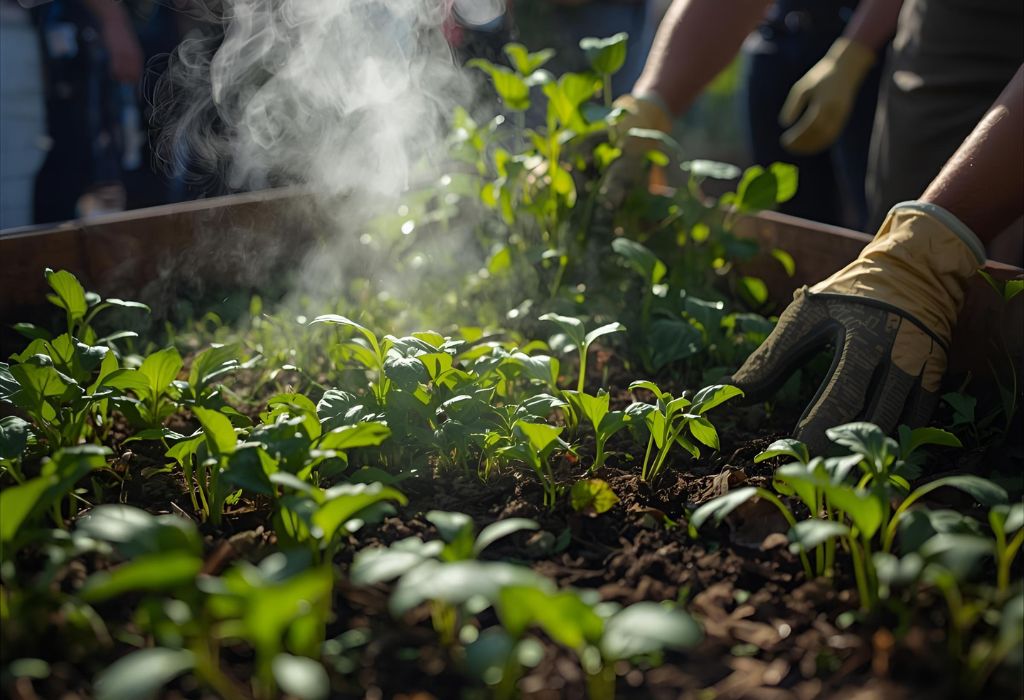
Weeds fall into two main categories: annuals that spread by seed and perennials that spread by roots and rhizomes. Both pose challenges if not handled properly during composting.
The main risk comes from weed seeds and persistent roots that survive low-heat compost piles. If they are not destroyed, they may sprout again when compost is applied.
Do weed seeds survive in compost?
Yes, if the compost does not reach temperatures above 140°F.
Can perennial weeds regrow in compost?
Yes, roots may survive and regrow if not killed by heat.
Why are weeds considered risky?
Because their ability to spread quickly can contaminate fresh soil.
Is it safer to avoid composting weeds?
Not necessarily, since proper methods can neutralize the risk.
Benefits of Composting Weeds Instead of Discarding
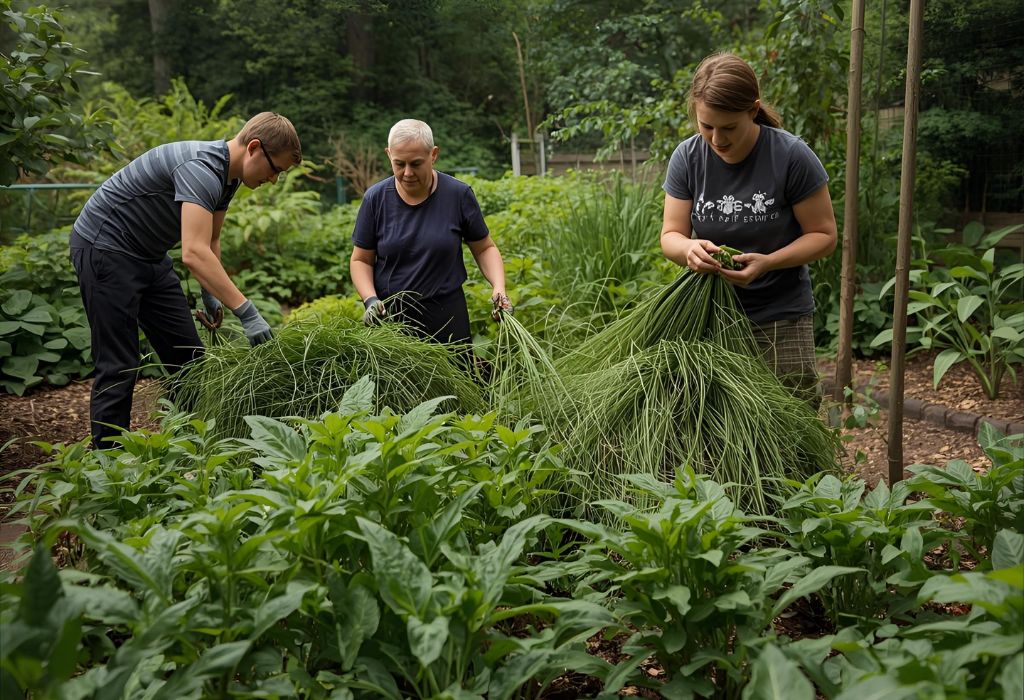
When composted correctly, weeds add valuable nutrients back into the soil. Their decomposition contributes nitrogen, potassium, and organic matter.
Composting weeds also reduces landfill waste, making it an environmentally responsible choice. It turns unwanted plants into a resource rather than a problem.
Is composting weeds eco-friendly?
Yes, it prevents organic waste from ending up in landfills.
Do weeds add nutrients to compost?
Yes, they decompose into the same valuable matter as other plants.
Does composting weeds save money?
Yes, by reducing reliance on store-bought fertilizers.
Is it better than burning weeds?
Yes, burning releases pollution and wastes nutrients.
When You Should Not Put Weeds in Compost
Some weeds are best kept out of the compost pile to avoid problems later. Those with mature seeds or aggressive root systems pose the greatest risks.
Weeds sprayed with herbicides should also be avoided. Chemicals can persist in compost and harm new plants.
Can herbicide-treated weeds be composted?
No, chemicals may contaminate your compost.
What about weeds with flowers?
They may still develop seeds, so avoid composting them.
Do invasive weeds belong in compost?
No, they are difficult to kill and may regrow.
What’s the biggest risk?
Spreading unwanted weeds back into the garden.
How to Safely Compost Garden Weeds
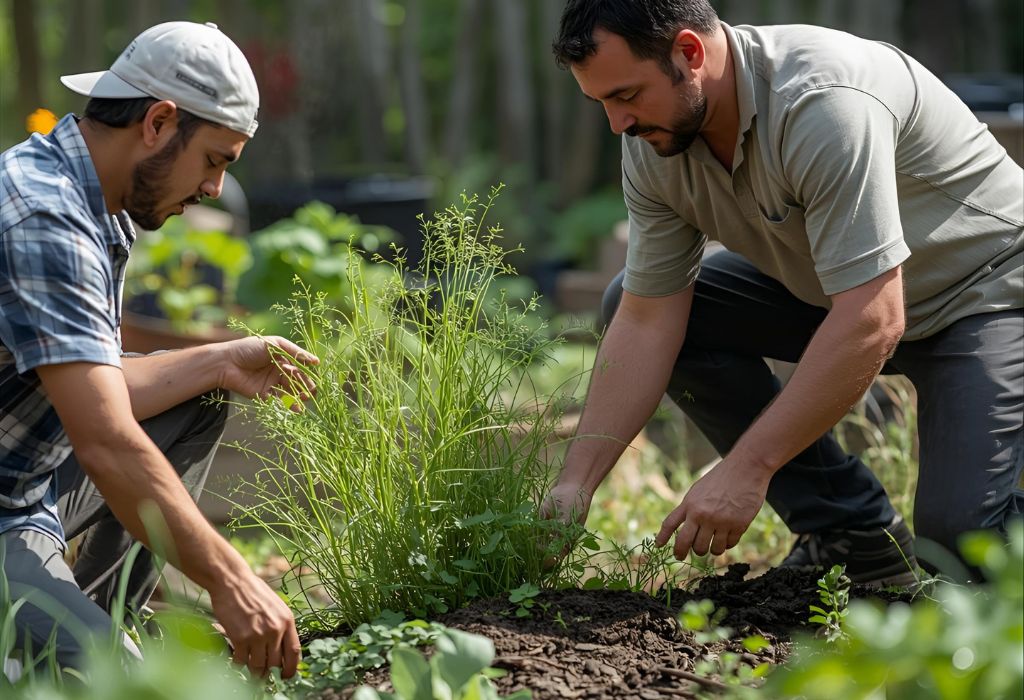
The safest method is hot composting, which maintains temperatures between 131°F and 170°F. High heat kills seeds and roots effectively.
Turn the pile regularly to ensure even heating, and place weeds deep in the center where temperatures are highest.
What temperature kills weed seeds?
Above 140°F for several consecutive days.
How often should I turn compost?
Every 1–2 weeks to maintain heat and airflow.
Should I chop weeds before composting?
Yes, smaller pieces break down more quickly.
Where should I place weeds in compost?
Always in the hot center of the pile, not on top.
Alternatives to Composting Weeds
If hot composting is not an option, there are other safe disposal methods. Solarization involves sealing weeds in a plastic bag and leaving them in the sun to bake.
Weeds can also be soaked in water to create “weed tea,” a nutrient-rich liquid fertilizer. Municipal green waste programs often handle weeds in industrial composting facilities.
What is weed tea?
It is a liquid fertilizer made by soaking weeds in water.
Does solarization kill weed seeds?
Yes, heat buildup in sealed bags destroys them.
Can weeds be used as mulch?
Yes, but only if dried and seed-free.
Are municipal programs safe?
Yes, they use high-heat composting methods.
Best Compost Bin Practices for Weed Management
Insulated compost bins are most effective for generating the high heat needed to kill weed seeds. Tumbling composters also help by improving aeration.
Maintaining the right balance of greens and browns keeps the pile active. Moisture should be monitored to avoid overly dry or soggy conditions.
How do I know compost is hot enough?
Use a thermometer to confirm it reaches at least 140°F.
Do bin designs affect weed breakdown?
Yes, insulated bins maintain heat more effectively.
Should I layer weeds with other materials?
Yes, mixing with browns helps balance carbon and nitrogen.
Is moisture important?
Yes, a moist but not soggy pile breaks down weeds faster.
Finishing and Using Compost Safely
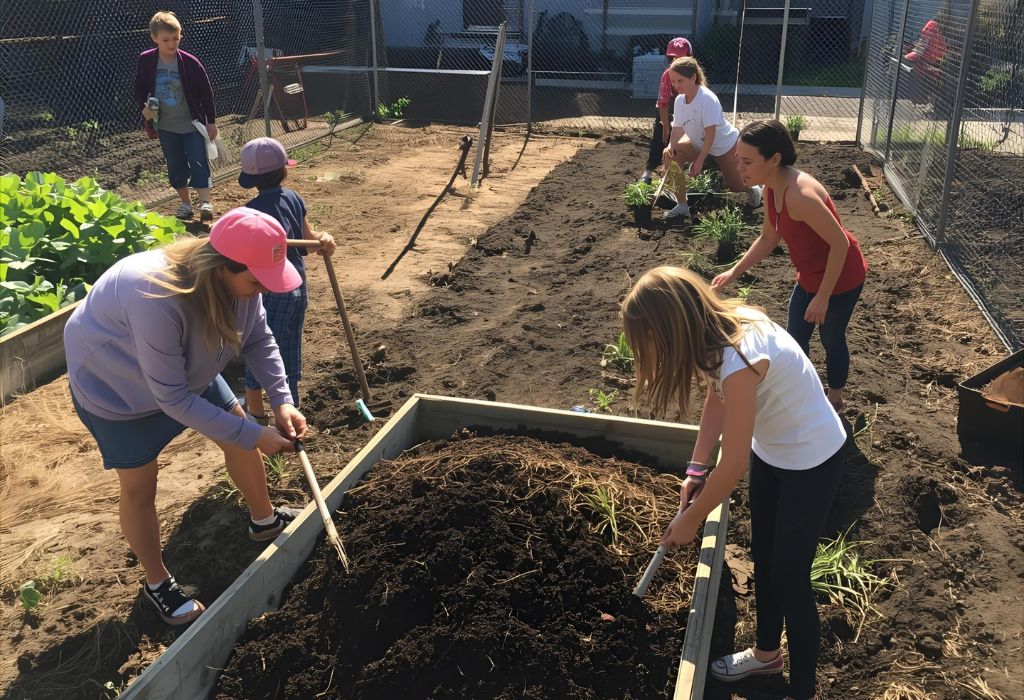
Finished compost should be dark, crumbly, and smell earthy. If weeds or roots are still visible, let it break down longer.
To be safe, sift compost before spreading to remove any debris. Use it in vegetable beds, lawns, or around ornamentals once fully matured.
How do I know compost is ready?
When it looks crumbly and smells earthy.
Can finished compost still contain weed seeds?
Yes, if the pile never reached high heat.
Should I sift compost before use?
Yes, it removes leftover roots or seeds.
Is it safe to use in vegetable gardens?
Yes, as long as decomposition is complete.
Composting Weeds in Different Climates
Hot composting is easier in warm climates where piles heat quickly. In colder regions, insulated bins or indoor systems may be necessary.
Seasonal timing also matters. Starting piles in spring or summer helps maintain high temperatures.
Does climate affect weed breakdown?
Yes, warmer climates speed decomposition.
Can I compost weeds in winter?
Yes, but bins need insulation to retain heat.
When is the best season?
Spring and summer provide the best conditions.
Do rainy climates cause problems?
Yes, too much water cools piles and slows progress.
Myths About Composting Weeds
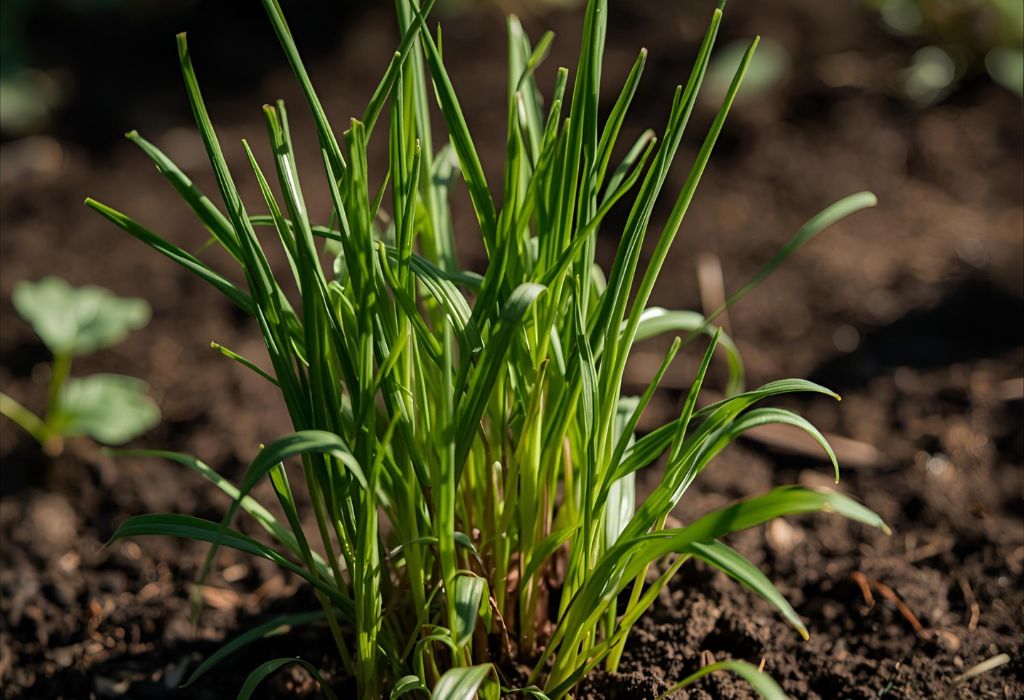
A common myth is that all weeds survive composting, but this is only true in cold piles. Hot composting destroys most seeds and roots.
Another misconception is that composting weeds spreads them everywhere. In reality, careful methods eliminate the risk.
Do all weed seeds survive compost?
No, high heat kills most of them.
Does composting weeds always spread them?
No, safe composting methods prevent regrowth.
Is it safe for organic gardens?
Yes, composted weeds provide natural fertilizer.
Do weeds add toxins to compost?
No, they decompose into safe organic matter.
Recommended Composting Tools and Products
A compost thermometer ensures piles reach the right temperature. Tumbling bins accelerate decomposition and help with weeds.
Insulated bins are useful in colder climates. A garden shredder or strong shears make chopping weeds faster and easier.
Do I need a compost thermometer?
Yes, to ensure weed seeds are destroyed.
Are tumblers better for weeds?
Yes, they generate heat more quickly and evenly.
Is insulation important?
Yes, especially for composting in cold climates.
What’s the best tool for chopping weeds?
A garden shredder or heavy-duty shears.
Conclusion
The answer to “can you put garden weeds in a compost bin” is yes, with the right precautions. Weeds are full of nutrients and can enrich soil when safely composted.
Hot composting, proper layering, and consistent monitoring reduce the risk of seeds and roots surviving. Alternative methods like solarization or weed tea also provide eco-friendly solutions.
By learning safe techniques, gardeners can recycle weeds into valuable organic matter instead of sending them to waste. Composting weeds responsibly transforms a garden challenge into a sustainable resource.
I’m Maya L. Greenwood, a lifelong plant lover who believes anyone can grow something beautiful with the right guidance. After years of testing soil mixes, pruning methods, irrigation tricks, and pest-safe solutions, I started EasyGardenTips.com to turn hard-won lessons into step-by-step advice. From seed starting and container gardens to composting and seasonal checklists, my goal is to make gardening simple, sustainable, and fun.
